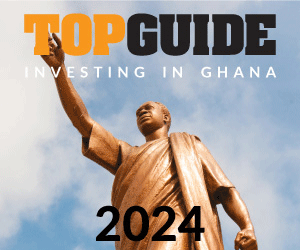West Africa has enjoyed something of an upturn in hydrocarbon fortunes over the past two years. The 2009 peace accord between the Nigerian government and militants in the Niger Delta has begun to yield benefits in the form of higher oil and gas production, and a more secure operating environment. Illegal oil bunkering and other forms of crime continue but the situation is more stable than at any time over the past four years.
At the same time, continued new finds off the coast of Ghana and Sierra Leone are encouraging investment along the West African coast. Finally, this oil renaissance could even benefit Côte d’Ivoire, as the hoped-for end to the civil war reawakens interest in the country’s hydrocarbon prospects.
While Nigeria continues to struggle with the ag-old problems of managing Africa’s biggest oil industry, the mood is far more upbeat further west, in Ghana. Production on the country’s first big oil scheme, the Jubilee project, had increased to 80,000 b/d by the end of June and will soon be ramped up to 120,000 b/d.
The project is operated by Tullow Oil (36.50%), Anadarko Petroleum (23.49), Kosmos (23.49%), state-owned Ghana National Petroleum Corporation (GNPC) (13.75%) and Sabre Oil & Gas (2.81%). Output will be increased to 250,000 b/d when Phase 2 of the Jubilee project comes on stream.
This will provide much needed revenue for the Ghanaian government but the country could benefit just as much from piping associated gas from the Jubilee Field onshore to the 330 MW Aboadze and 220 MW Tema power plants. Coupled with the development of the 400 MW Bui hydro scheme in the northwest of Ghana, the gas should secure the country’s power supply for the foreseeable future.
It should also enable the development of new thermal power plants, allowing Ghana to resume its position as a net power exporter within the region. It could also be supplied to new industrial concerns in a country that is enjoying strong economic growth but which would benefit from further economic diversification and also the new jobs that this can bring.
The Jubilee project and a succession of nearby finds over the past two years are encouraging bigger fish to enter Ghanaian waters. Mike Muller, the global head of Shell Trading, commented: “We have a growing appetite for Ghana and we are seeking the opportunity to participate in the country’s upstream activities. We are working to acquire a licence for exploration.” In July, Tullow completed the purchase of the Ghanaian assets of EO Group for $305m, thereby increasing its stake in the Jubilee project from 34.75% to 36.5%.
Following on from the success of the Jubilee Field, a string of other finds have been made and it seems likely that several other fields will be brought into production over the next five years, firmly putting Ghana on to the map as an oil producer and exporter.
It now seems possible that the West African state could match middle-ranking African oil producers, such as Gabon, Equatorial Guinea, Congo-Brazzaville and Sudan – all behind the region’s two heavyweight oil powers: Angola and Nigeria.
In August, Anadarko announced new finds in the Akasa 1 well offshore Ghana. Anadarko senior vice president for worldwide exploration, Bob Daniels, said: “ After successful appraisal, we expect the Akasa discovery along with previous discoveries at Teak to potentially anchor an additional development on the block.”
Tullow announced its latest find in Ghana in September. The Enyenra 3A appraisal well discovered a 17-metre band of oil. Angus McCoss, Tullow’s exploration director, said: “This excellent result demonstrates that we are close to declaring the Enyenra and Tweneboa development commercial. The long oil column in Enyenra is very encouraging.” Seven of the nine wells drilled by Tullow and its partners offshore Ghana this year have found oil and gas.
Sierra Leone, Liberia potential
The West African exploration boom has not been limited to Ghana. Anadarko is to drill a new exploration well offshore Sierra Leone, about 24km from its previous Mercury find, plus another well closer to Mercury to establish the extent of that discovery. Commercial development may depend on the results of the two wells. Finds off the coast of Sierra Leone have also encouraged investment in neighbouring Liberia, partly because of geological similarities in their maritime acreage.
Chevron plans to start drilling exploration wells offshore Liberia on the three blocks that it controls. Chief executive John Watson commented: “If our exploration programme is successful, we look forward to bringing Liberia’s resources to the world energy market.”
With a stable democracy and a degree of economic balance, Ghana is in a stronger position than most to cope with an oil boom. It will be interesting to see how either Sierra Leone or Liberia copes with a sudden influx of oil revenues, if production ever begins. The income it would provide is badly needed but the political and economic challenges would be huge.
Want to continue reading? Subscribe today.
You've read all your free articles for this month! Subscribe now to enjoy full access to our content.
Digital Monthly
£8.00 / month
Receive full unlimited access to our articles, opinions, podcasts and more.
Digital Yearly
£70.00 / year
Our best value offer - save £26 and gain access to all of our digital content for an entire year!

 Sign in with Google
Sign in with Google 





